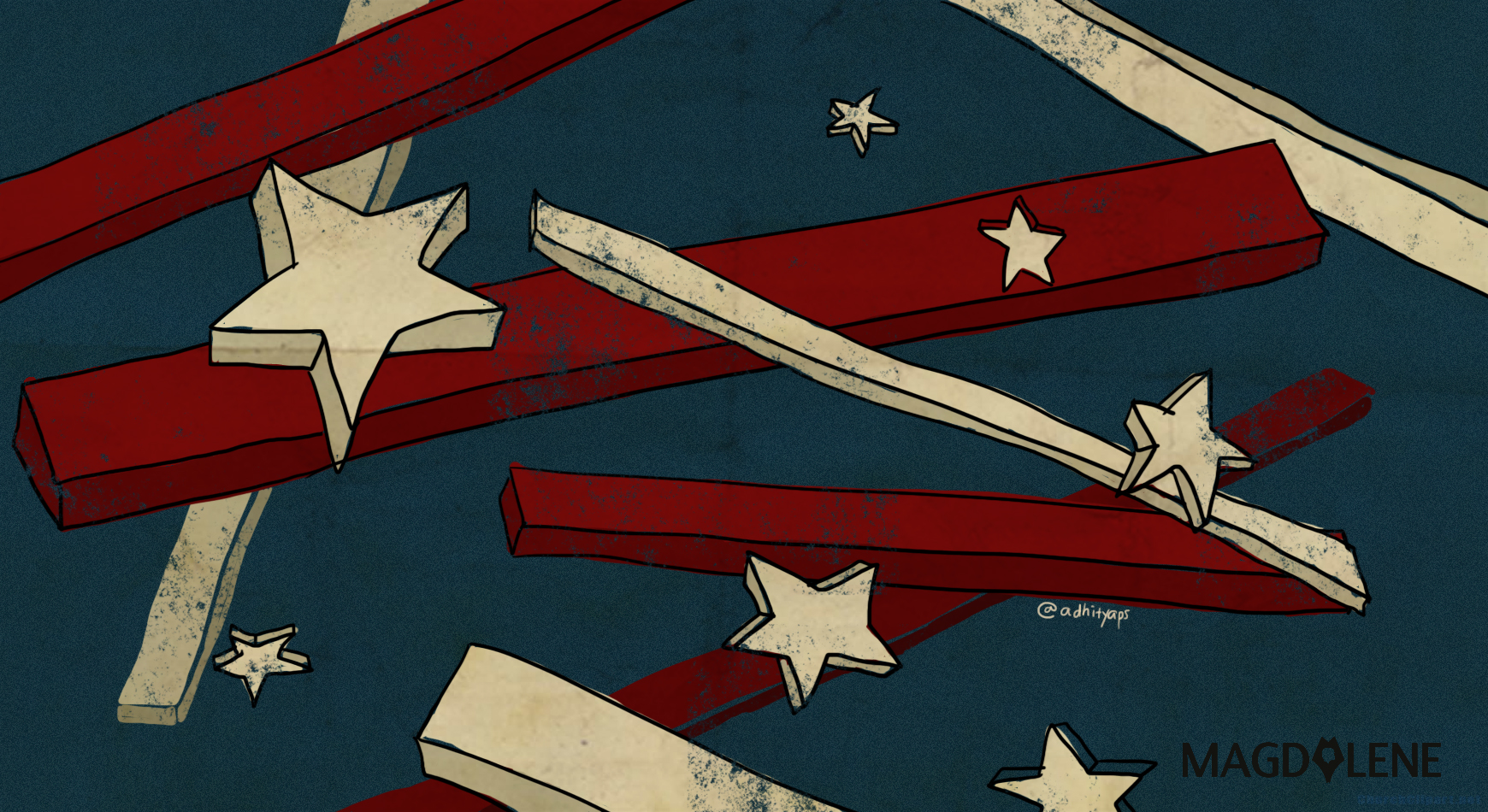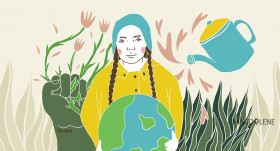The great American poet Robert Frost once wrote that America is hard to find. I recalled these lines as I was watching Trump’s inauguration and when reality hit me that Donald Trump would be the 45th President of The United States. All the dreadful things he had said about women, Muslims, Mexicans and other minorities.
From Barack Obama to Donald Trump. How correct was Robert Frost.
I left America for good in the early days of summer in 2016. I had been a student of law at the University of Washington in Seattle. A recipient of Fulbright scholarship, I lived frugally off the scholarship and my monthly salary from my office, all so I could travel as much as I could while I was there. I’m not being nuanced when I say I wanted to see America like the one I saw in the movies: from the Deep South of “Forrest Gump” and “The Help” to the Pacific’s Northwest of “Stand By Me.” The American experience does include road trips, Super Bowl and big stadium concerts. Needless to say, I was on a mission to encounter America.
But what happened was the opposite. I encountered Indonesia in almost every place in America. When I hopped on the shared van to Philadelphia Airport, a nice elderly black lady opened up a conversation, and it turned out her business partner was Indonesian, with whom she started a health project “somewhere in Sumatra.” At the New York’s Metropolitan Museum of Art a painting of a young Javanese dancer by John Wynn Sargent caught my attention. In the same museum stood the Asmat collection by Michael Rockefeller. Just off Seattle’s shore, in the Tillicum Village on Blake Island, the all-smiling photo of the late President Suharto greeted me. While on a Louisiana plantation tour, I met a young woman who had an Indonesian boyfriend whom she adored so much. The most surprising of all, however, was when I was chatting with an Indonesian friend in a ferry to the Olympic National Park in Washington, a guy tapped my shoulder to ask if we were Indonesian. Apparently, he recognized the language from the movie The Raid. How random.
In law school, one of my professors spent a couple of years in Yogyakarta teaching English to graduate students during the Suharto days. He fondly reminisced the day the police pulled him over because his motorcycle had the “Forum Demokrasi” sticker. It was a pro-democracy discussion group consisting of people outspoken against the government like Marsillam Simandjuntak, the late president Abdurrahman Wahid (then the head of the largest Muslim organization), and Wimar Witoelar. As we all know, being critical against the government was forbidden during the Suharto era and a Caucasian man riding a motorcycle that flaunted this sticker around UIN Yogya was pretty much inviting trouble. He encouraged one of his students to write his thesis “like a journey to one’s own ear”, telling the student the Javanese myth of Dewa Ruci. To have a foreign professor citing your culture to encourage another student is so special it will forever stay in my memory.
Since I lived in Seattle during my course, I paid a visit to Arlene Lev, wife of the late Indonesianist Dan S. Lev. In her warm kitchen and over homemade apple pie, we talked about the Indonesia she was familiar with, that in the Suharto and Sukarno days. Her house is like one of those old houses of Menteng, batik table cloth and wayang puppet on the wall over a baby grand piano. As she lamented for the Indonesia she knew then, she spoke of Syahrir as “a true democrat”, a rare character found in today’s Indonesia.
America, the Democrat
A democrat.
I try to emphasize this word over and very to myself when I saw a lady near the Washington State Fair staging a solo rally by holding a banner “it is my right to bear arms,” a particular right despised by the liberal Washington State population. People passed by and ignored her. In downtown Portland, Oregon, a man held a Bible pointing to the sky and urged pedestrians to surrender themselves to Jesus.
Like most states on the West Coast, Oregon is a Democratic stronghold, unlike the Bible-thumping Republican states. At a booth at Seattle’s annual University District Street fair, some Middle Eastern-looking folks distributed leaflets and politely asked passersby whether they had any question on Islam. In Boston Commons park in Massachusetts, also a stronghold for social progressives and liberals, a band of people in traditional garbs handed out bookmarkers quoting the Bible on a hot summer day.
Everybody tries to sell you something in America, either an idea – of salvation or the guaranteed right to possess firearms – or things that had nothing to do with the issues of the day – like Girl Scout cookies marketed by young girls around the street corner. The little town of Northampton in Massachusetts where I stayed during my early weeks in the US has the most same-sex households in the U.S.. Their crossroads were painted colored. And, yet, Saudi students studied English comfortably there. As a Muslim student, the Gallagher Library in the law school provided a sanctuary to pray during Zhuhur, Ashr and Maghrib.
Being in America tested your democratic values. And I guess one has to be a democrat inside out to agree to disagree and not be annoyed by people shouting their religion at you or advocating their liberal values to you on the street; or to see a Muslim performing her daily prayers in the law school library.
But of course I may be biased. After all, my education was sponsored by the US Department of State in the days of Barack Obama administration. Maybe I’m in a permanent awe with their beautiful spacious skies or with their many shades of skin colors and the many accents they speak. Or with their lasting optimism for a better tomorrow, their concept “to the west” and to reach the “American Dream.”
My American experience felt personal to me. In a way it led me to encounter Indonesia as my motherland: the bittersweet longing on August 17th to watch on TV the usual parade in the Merdeka Palace. I had a similar feeling when I scrolled on iTunes to look for traditional Sundanese and West Sumatran melodies, because I missed the sound of my country so much.
Which is where Donald Trump comes in. It became more personal to me when people with whom I had made good friends in the U.S. were filled with fears of the man who will sit at the Oval Office for four years. Some of my friends are women of minority and color, but even all the white Americans I know did not vote for him. Trump does not represent their values. Perhaps I mingled with the right crowd, after all.
I shall always remember my final days in the New England summer when my wonderful host took me for local concert and ice cream. I could never repay their friendliness and welcoming gestures to me, a student from a faraway country. Even in the whiteness of Nashville, never once did I receive unwelcoming attitudes from Americans.
Try to wear my hat for a moment and imagine yourself a student from Sawahlunto, West Sumatra, who is living in Bandung, West Java; or someone from Kediri, East Java, who is studying in Medan, North Sumatra. Imagine that people never look down on you or treat you like a stranger. In a strange place, far away from your own home and families, you look for people who open their doors for you and give you a chance
I wrote this with Simon and Garfunkel’s “America” playing in the background. After listening to Trump’s xenophobic inaugural speech, it is not easy to imagine America of the ‘60’s, when this song first came out. Yet I am assured the optimism held by Americans and their unbreakable enthusiasm will get them through the gloomy days projected ahead. In the age of totalitarianism, Americans have no choice but to move forward. Because hope doesn’t quit.
Let me borrow the lines from “A Land Not Mine” by Russian poet Anna Akhmatova:
A land not mine, still
forever memorable,
the waters of its ocean
chill and fresh.
Gita Putri Damayana is a researcher at the Centre for Law and Policy Studies (Pusat Studi Hukum dan Kebijakan Indonesia/PSHK) and a Fulbright scholar. Her views are her own and does not represent Fulbright, nor the institution she works with.








Comments